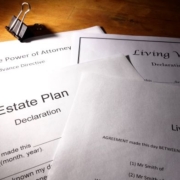Important Facts About Living Wills
If you became seriously ill or injured and were unable to make decisions with important facts about living wills for your healthcare, what would happen? You don’t have to be old to become incapacitated. A living will, a component of an advance health care directive can outline your wishes so that your loved ones can make informed decisions about your care in an emergency.
Your living will doesn’t passes assets and property to beneficiaries like a standard will. Instead, it advises your doctors and family about how you want to receive medical care and may limit certain treatments. Your living will can bring your family comfort in times of uncertainty, knowing they understand your healthcare wishes. Creating your living will can bring peace of mind knowing there is a plan for medical emergencies. There are ten important facts about living wills.
1. Rules for Living Wills Vary by State
Depending on your residential state, this document may be referred to as an advance directive. Each state has different requirements and procedures for a living will’s creation and execution.
If you spend significant amounts of time in another state, ensure your living will is valid in the second state. Most states (but not all) will accept a living will from another state if it is valid in the state where it was created. Check with your attorney about your state’s rules. If you spend significant time out of the country, you want to know the country’s laws to create a valid living will while there.
2. Your Living Will is a Binding Legal Document
Do not rely on an informally written document or verbal consent as your living will. Before you become incapacitated, you must document your healthcare wishes in compliance with state law and legally address instances of incapacitation, permanent unconsciousness, or a terminally ill diagnosis.
3. Medical Doctors Determine the Incidence of Incapacitation
Whether terminally ill, permanently unconscious, unable to communicate, or incapable of making rational decisions due to injury, a medical doctor’s assessment, and usually a second opinion, is the determining factor putting your living will into effect. If you see your doctor regularly, discuss your wishes and living will ahead of time to see if they will comply with your instructions or if there is something to talk through.
4. You Can Change Your Living Will
You can revoke, revise, or create a new living will at any time. However, simply destroying the old copy complicates the connection it may have to other estate planning documents or files. Your attorney can help you fully and formally revoke or modify your living will correctly.
5. There is a Difference Between an Advance Directive and a Living Will
There are numerous advance directive document types as it is a broad category of legal instructions regarding your healthcare. The more familiar include a medical power of attorney, living will, and do not resuscitate order (DNR). A living will is a subset of the advance directive specifically expressing medical treatment preferences in the case of terminal illness or incapacitation.
6. Younger People Need a Living Will
Adults of all ages can benefit from implementing this legal document. Seemingly healthy young individuals can become unexpectedly ill or injured. Procrastinating about creating your living will until you get “old” could leave you in an unfortunate situation after an accident or serious illness.
A living will does more than convey your desire to remove yourself from life support under certain conditions. It can specify treatment and care preferences, including medical techniques and devices you accept (or do not), pain management, and clergy visitation.
7. You May Appoint a Healthcare Agent
You may choose a healthcare agent. The agent may not be your doctor or medical team to avoid conflict of interest. Nor can they own, manage, or work for the facility where you receive treatment. Often, a family member who you trust with the significant responsibility of handling stressful emergencies will accept this role — review your emergency, critical, and end-of-life care preferences with them.
8. Have a Healthcare Power of Attorney
This power provides an individual the right to make medical decisions on your behalf if you cannot do so. Appointing a healthcare power of attorney is not the same as your living will, but it is part of the estate planning process.
9. Will the Medical Staff and My Family Comply with My Living Will?
Ultimately your medical doctor is responsible for your course of treatment. They technically do not have to follow your living will, yet most will. However, in an emergency, your doctor’s choice may override your living will if they feel an ethical obligation to the Hippocratic oath. Talking to your doctor about your choices in advance and sharing access to your medical history with family members using a HIPAA form are your best courses of action to feel secure that everyone will comply with your wishes.
Having a living will is essential to a complete estate plan. Creating this document with your estate planning attorney can bring you and your family peace of mind.
For assistance, please contact our Ruston, LA office by calling us at (318) 255-1760.



